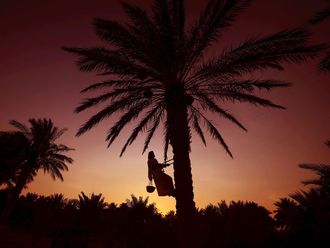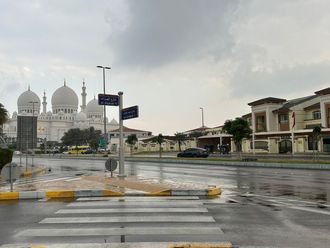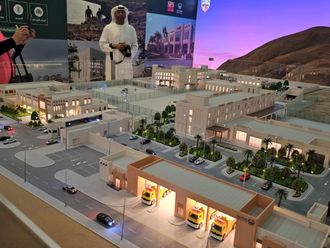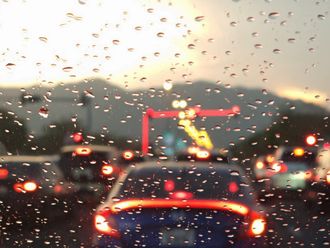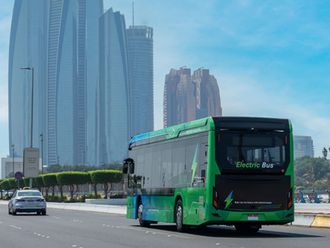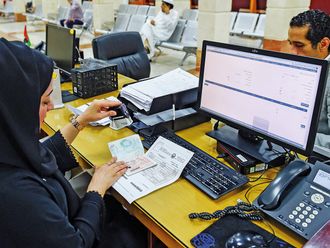Every morning, Moustafa Mohamed wears his beekeeping suit, thick gloves and a net covering his face, to check on hundreds of bee hives, lined with thousands of the fuzzy insects busy in different stages of honey production.
His job as production manager at the Hatta Honey Bee Discovery Centre requires him to check the health of the bees, how the queen bee is doing and whether the colony of bees is at optimum health.
Dubai’s role in protecting bees
Bees are known as the ‘world’s greatest pollinators’ and simply put, this is why we need to protect them. Here in the UAE, efforts are being made to protect the flying insects that are crucial to our environment.
The Hatta Honey Bee Discovery Centre not only produces local honey but it is also committed to help sustain the honey bee population in the UAE.
Muhammad Magdi, general manager at the facility, said: “It's about maintaining a balanced ecosystem and promoting biodiversity. Hatta Honeybee Discovery Centre serves as an educational hub, offering workshops, tours, and resources to promote sustainable beekeeping and honey production. We also collaborate with local farmers and organisations to boost the industry.”
Dubai is also home to the Beekeepers Foundation, located in Sustainable City. The non-profit organisation is a bee garden dedicated to spreading awareness and educating the public about beekeeping, ultimately increasing beekeepers in the country.
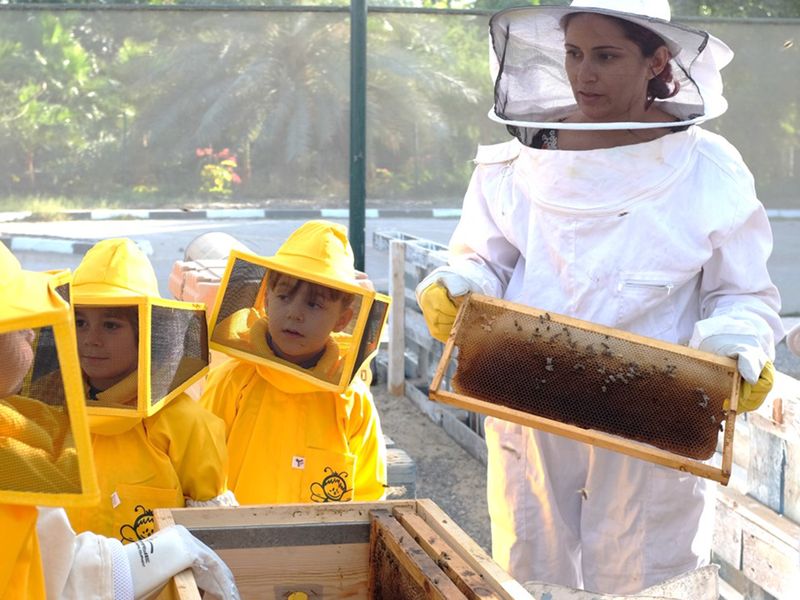
Their mission is to “create a platform for professional and hobby beekeepers to share know-how and raise public awareness about the importance of bees in our daily life”, according to their website.
The association also aligns with UAE National Food Security Strategy 2051. "Our efforts align perfectly with the UAE National Food Security Strategy 2051, which seeks to implement resilient agricultural practices, boost productivity, and maintain the delicate balance of our ecosystems. We're on a mission to sweeten the world with the fruits of our labour and contribute to a brighter, more sustainable future," said Nedjraoui.
From mud to recycled plastic boxes
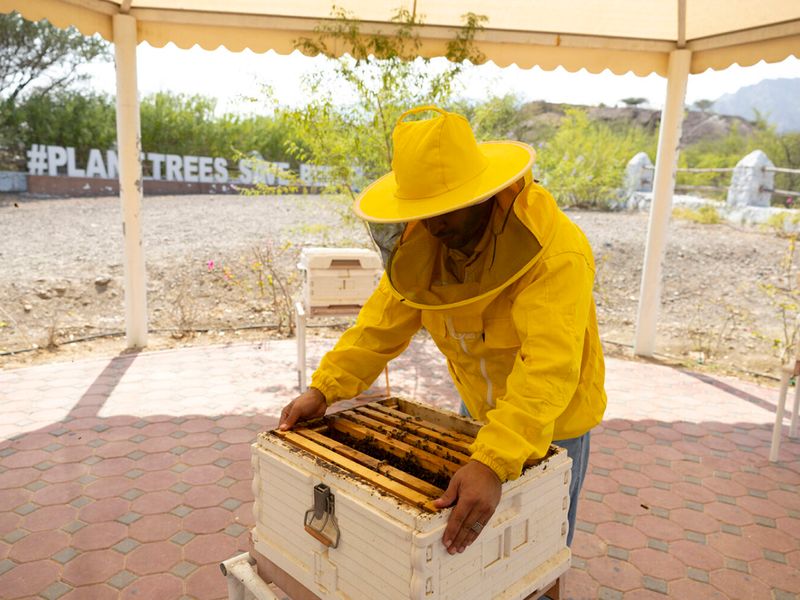
Before we get into the many ways Dubai is promoting beekeeping as part of its sustainability goals and to fight climate change, let’s take a brief look at when it started.
At the Hatta Honey Bee Discovery Centre, we walked past the hive structures that were used more than six thousand years ago. There’s one made of mud; there’s another one in clay.
In the days of ancient Egypt, bees were kept in hives made of mud, with a few holes that allowed them to leave occasionally. “The most important thing was that the queen bee remained in the hive. At that time, people just waited for them [to make honey] and then destroyed the hives,” said Abdelaalim Al Aabqary, the tour guide for the Hatta Honey Bee Discovery Centre. Other parts of Africa and Europe had similar ideas, except the bee hives were in clay structures.
And now, the hives are in recycled plastic boxes, where the bees reside on wooden frames. It’s called the apimaye hive, which is a type of bee hive that is designed in such a way that a colony of bees can produce more honey. The layered insulation of the structure ensures the bees comfort; the colony is warm in the winter, and cool in the summer. As they’re made of plastic, the hives are far more resistant to normal wear and tear. Moreover, it has a longer life, compared to other hives. It is sustainable, as according to Magdi. Thousands of trees don’t need to be cut down for the purpose of making bee hives, ever year.
There also several benefits to open hives. In the case of closed hives, it was rather difficult to assess if the bees were sick or unhealthy, which could lead to problems in the honey-making process, explains Al Aabqary. Several steps are taken to ensure that the bees remain healthy, including regular hive inspections and making sure that the bees have enough diverse and food resources around them. In this respect, these kind of hives are also convenient.
“The bees always need nectar and water, so we need to keep moving the frames from place to place. That’s another reason why we use the wooden frames,” said Al Aabqary.
Al Aabqary showed the wooden frames. Peering through our protective bee-suits, we saw a cluster of bees, some flying around us, too. “These are calm bees,” he assured us, as we watched the bees. “Bees know each other. They can detect who is an enemy or a friend from the pheromones,” he says. While we watch the bees in the hive, we notice the queen bee. She’s distinct from the others; she’s marked with red.
The queen bee chooses the middle of the frame to rest and lay her eggs as it’s warmer, and the babies can be raised faster, he said. “This is the queen of 2023. As the queen lives for five years, we have a colour for each year,” he added.
The bee species
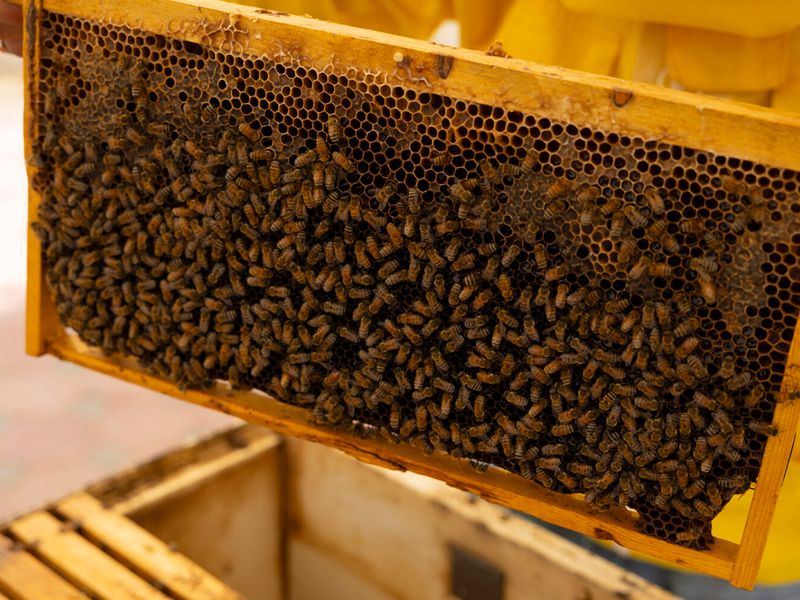
What kind of bees survive in the climate of the UAE?
Well, a rather unique kind.
The UAE is already home to Apis florea, which is a dwarf bee that exists in the wild, however, they are not used for honey production. The beekeepers work with the bees from Oman and Saudi Arabia, according to Mohamed. Hence, there is mixed breeding that takes place, so that the bees can manage in the UAE climate. “We collect queen bees from different countries and select Omani and Saudi bees, and mix the breeds. We try to create our own native bees,” said Mohamed. This bee, which is the closest to being native in the country and can thrive in the UAE climate is the Apis mellifera jemenitica. These bees are generally darker, smaller in colour, which allows for better heat regulation, explained Magdi. “They’re also efficient foragers, and can thrive in difficult environmental conditions,” he said.
Nevertheless, many a times, it is important to remember not all factors are in our control, when it comes to beekeeping. It’s crucial to adapt sustainable beekeeping practices tailored to the unique environment. Zahira Nedjraoui, the president of the Beekeepers Foundation , said that they prioritise maintaining bee colonies year-round instead of replacing them annually.
The honey-making process
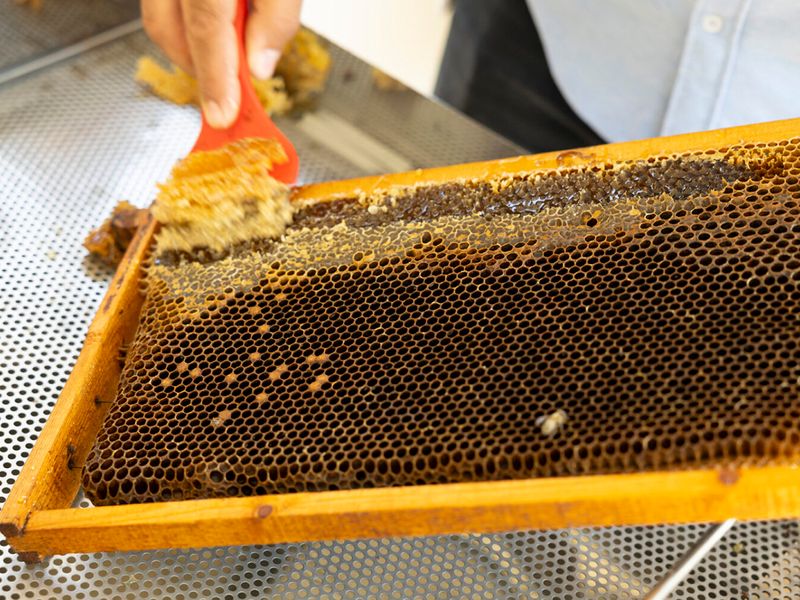
Between scraping off beeswax from the wooden frames and the final thick, golden honey in the bottle, there are several weeks of waiting.
We got a brief demo. Using a specialised scraping tool, Mustafa scraped off the beeswax from the honeycomb, as part of the “uncapping” process. “When we extract the honey, we need to remove the wax,” he said. Following this, each frame is placed into a centrifrugal extractor, which is a large container, to spin out the honey.
The extractor spun for several minutes and we see the first sign of honey as a result. However, it was far from ready, yet. The honey has to be further strained, to remove the debris from beeswax and other residue. It is then placed in large bulk containers for maturation, which is around a couple of weeks. Finally, it is poured into bottles for sale.
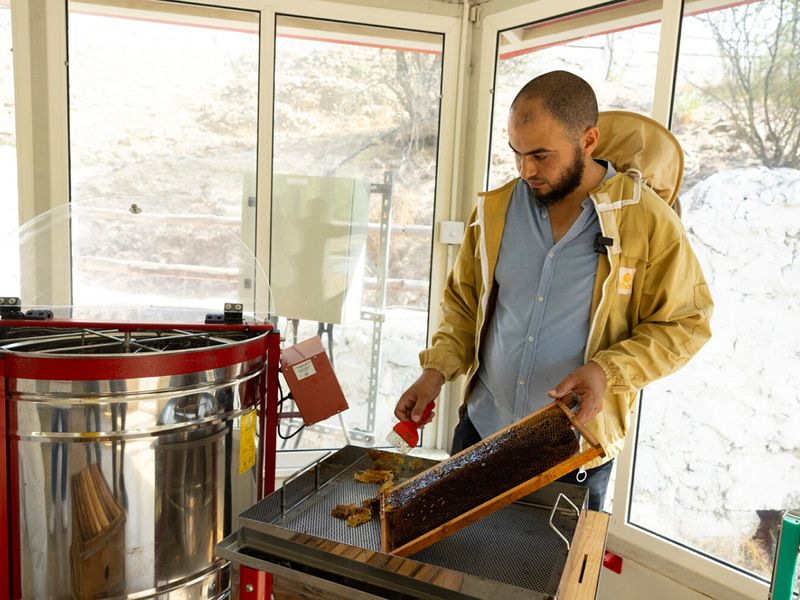
Why bees are important to the ecosystem
While these efforts are being made in Dubai to sustain the bee population, it is important to understand the role these tiny, fuzzy insects play in our ecosystem.
Magdi said: “Bees play a crucial role in pollination, which is essential for the growth of fruits, vegetables, and nuts. They also help in increasing crop yields, thereby benefiting agriculture.”
Bees also play an essential role in fighting climate change. Nedjraoui said: “Bees and beekeeping stands as a vital solution to the pressing challenges posed by climate change, particularly in regions arid lands, such as the UAE.
“Bees enhance pollination, invigorating vegetation growth, helping in soil retention and reducing desertification. Bees also have a profound impact on food security, which, in turn, uplifts the livelihoods of our local beekeepers,” she added. Essentially, bees are necessary for most of our food to continue growing.

Bees and beekeeping stands as a vital solution to the pressing challenges posed by climate change, particularly in regions arid lands, such as the UAE. Bees enhance pollination, invigorating vegetation growth, helping in soil retention and reducing desertification.
Promoting beekeeping in the community
It’s not just local honey production or beekeeping on a largescale that the UAE is focused on. It is also a practice that the community is encouraged to adopt.
Nedjraoui, said that the Beekeepers Foundation made it a mission to educate the public about beekeeping.
“When I decided to take up beekeeping in 2015, I researched online for information and to my surprise, there was a … lack of information on bees and beekeeping in the UAE, and no dedicated association for enthusiasts like me,” she said.
She started the organisation in 2017 and since then, their message has spread far and wide across Dubai and the UAE.
“We've successfully graduated over 150 new beekeepers through our beginner's beekeeping course, and we have engaged with hundreds of students via our school outreach program, fostered a vibrant community of bee enthusiasts, including hobbyists and professionals, established an educational bee garden at the Sustainable City open to the public, and proudly represented Dubai and the UAE in the global beekeeping arena. We take pride in our role in enhancing the beekeeping landscape in the UAE,” she said.
The Beekeepers Foundation plays a significant role in nurturing the practice of beekeeping here in the UAE, with a special focus on Dubai. “Our journey began with a mission close to our hearts: spreading awareness about the vital role honeybees play in local and global ecosystems. We wanted everyone, and especially children, to appreciate how honeybees are the heroes of our environment, pollinating native plants and supporting our local farmers.”
One of their key goals is to secure "protected status" for native bees, both at farms and in the wild, ensuring their preservation for generations to come.
They are passionate about promoting beekeeping best practices, and providing educational support to the local beekeeping community. “This includes welcoming newcomers to the field, encouraging ‘hobby’ or backyard beekeepers to join the cause.”
Starting your own bee farm at home
One of the mission of entities such as the Beekeepers Foundation and the Hatta Honey Bee Discovery Centre is to make more and more people take up beekeeping as a hobby.
“Starting beekeeping at home can be a fulfilling and environmentally beneficial activity. We recommend educating yourself about beekeeping, and consider taking a course, whether through our organisation or elsewhere, and joining a beekeepers' association,” said Nedjraoui.
Both the Beekeepers Foundation and the Hatta Honey Bee Discovery Centre offer educational tours as well as workshops. You can check their websites for details.
“It's essential to check your community regulations and ensure compliance. While beekeeping can be rewarding, it's important to approach it with knowledge and responsibility to ensure the wellbeing of both the bees and the beekeepers,” said Nedjraoui.
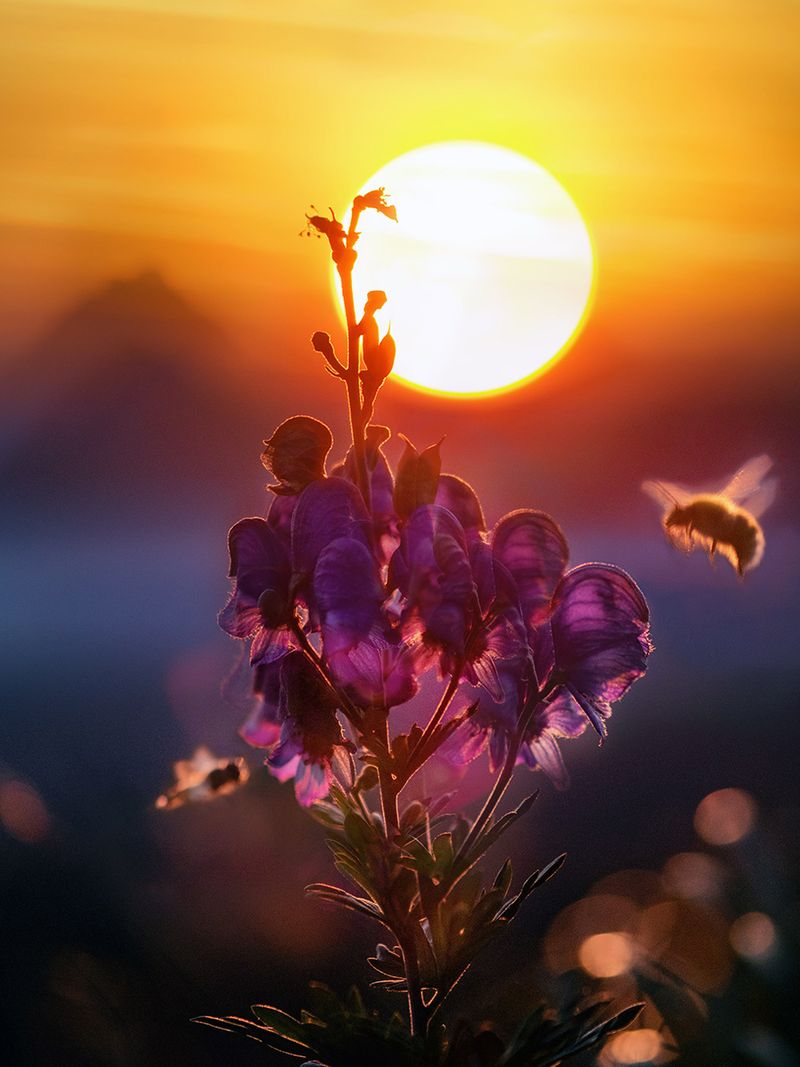
UAE is ideal for beekeeping
“The misconception that arid lands mean a lifeless environment couldn't be farther from truth. These landscapes host a surprising richness in flora and biodiversity, which are favourable to beekeeping,” said Nedjraoui.
The UAE’s topography is ideal for producing various different types of honey, distinctly varied in their colour, taste, benefits and aroma.
Sidr honey and Ghaf honey are produced in deserts, Samar honey is produced from mountainous areas. Mangrove honey is produced from the seashores of Ras Al Khaimah, Umm Al Quwain and Abu Dhabi.
Magdi said: “The diverse landscapes in the UAE, from deserts to mountains, can offer a variety of flora that bees can forage from, thereby aiding in the production of different types of honey.”
The diverse landscapes in the UAE, from deserts to mountains, can offer a variety of flora that bees can forage from, thereby aiding in the production of different types of honey
Different times of the year, different types of honey is produced. Wildflower honey season is typically between March to April, Samar honey is produced in May, Ghaf honey in June, Mangrove honey in July and Sidr Honey in October.
Dubai’s Hatta is known for its unique geographical features, including mountains, valleys, and oasis. These features contribute to the formation of microclimates, promoting various kinds of vegetation, upon which bees feed.
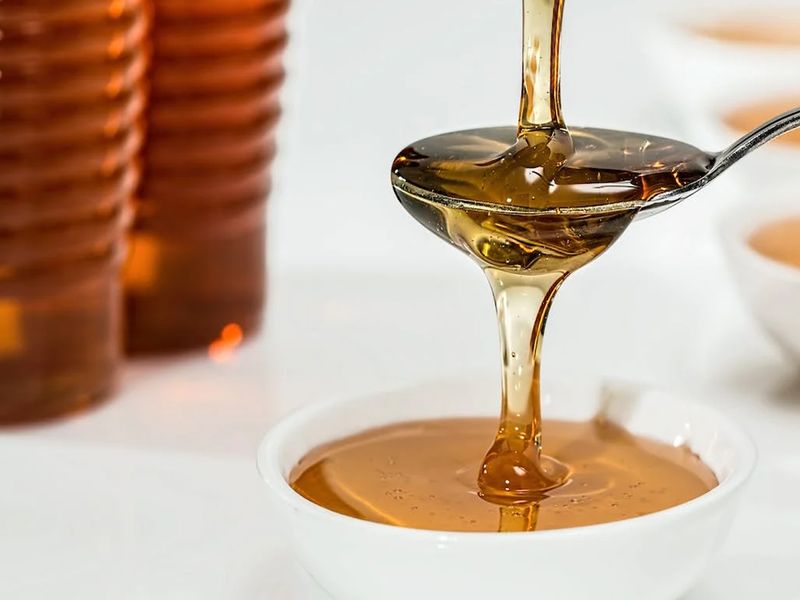
Stance on using sustainable methods
It’s not just beekeeping but using sustainable methods to keep bee populations up is key. The bee farms in Hatta Honey Bee Discovery Centre have international certifications such as European Securities and Markets Authority (ESMA), International Organization for Standardization (ISO) and Hazard Analysis and Critical Control Point (HACCP).
“Our efforts align perfectly with the UAE National Food Security Strategy 2051, which seeks to implement resilient agricultural practices, boost productivity, and maintain the delicate balance of our ecosystems. We're on a mission to sweeten the world with the fruits of our labour and contribute to a brighter, more sustainable future,” Magdi said.
“The location of our apiaries, type of beehives we keep, choice of wax foundation that we recycle and print to re-use again in our frames which are chemical free, we use sustainable practices. Even the type of bees – with the first and only queen breeding station for local native bees apis mellifera jemenitica in the UAE that help us reduce the import of massive bees that come full of antibiotics,” he added.
The Beekeepers Foundation is also prepping to share its findings from beekeeping practices in the UAE with the rest of the world. “We've embarked on a global mission to promote beekeeping in arid lands,” Nedjraoui said, inviting people to join a forum on the topic set for The 2023 United Nations Climate Change Conference (COP28).



